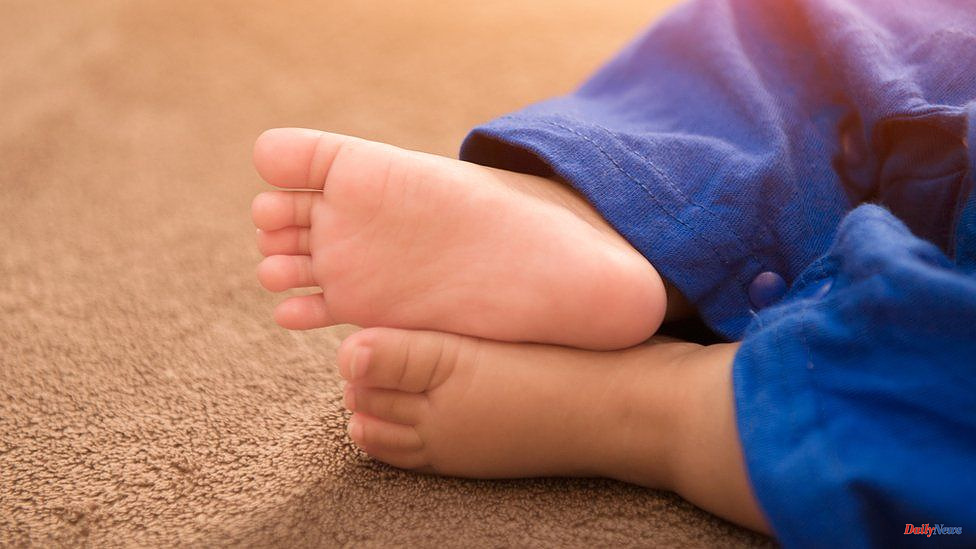China suspended two officials from a southern county's health department for failing to address the case of a baby boy whose parents were allegedly kidnapped by local officials in 1990s.
His parents petitioned Guangxi police to investigate.
A local health bureau declined to investigate the case and stated that he had been removed due to "social redistribution" under China's old one-child policy.
This case has caused outrage on social media at the authorities.
Many people online were critical about the strict rules of the one-child policy. They called the incident "blatant human trafficking".
This comes as a result of recent news about a Chinese mother being filmed in a village house hut. This has sparked debate about human trafficking in China's rural areas.
A letter sent by the Quanzhou County health bureau went viral on Chinese social networks earlier this week. This letter was sent to a couple in response to their request to open an investigation into the disappearance of their seventh child in the 1990s.
The couple, who were identified as Tang and Deng, had asked police to investigate a group of former local officials.
Local news outlets reported that the parents claimed they never gave up looking for their child and had filed numerous complaints to different government departments.
The local health bureau responded on 1 July and stated that an investigation would not take place as the child was not abducted but had been taken by the authorities to be used for "social reallocation".
According to the Global Times, the authority stated that there is no record of "whereabouts children who were redistributed for the convenience family planning work rolled across the country".
The letter quickly became viral as many people condemned the policy while others highlighted the importance of "social reallocation".
What does social reallocation mean? This isn't human trafficking? One person asked. Many others shared their personal stories about how the one-child policy, which was implemented in 1979 to slow China’s population explosion, had affected their families over the years.
Hu Xijin, former editor-in-chief of the Global Times, was one of those who weighed in on this matter. He criticized the use "indifferent" language in the government statement as well as how it had sparked a "public crisis".
Caixin interviewed the mother of the child and revealed that they had already been fined by their local officials for having more than one child. She claims that her child was still taken from her despite all of this.
The hashtag #QuanzhouOverBornKidCaseBeenReportedtoGovernment gained almost 60 million views as millions online began discussing the case and backlash ensued.
The Guilin People's Government, which is the administration that Quanzhou falls within, sent out a letter on 5 July stating that the Quanzhou health office had "improperly processed a petition that raised social concern".
They stated that an investigation would be opened into the matter, and that the director (and deputy director) of the health bureau would both be suspended for failing to respond to the petition and "administrative inaction".
Families could face heavy fines or other punishments if they had more children under the 1979 one-child policy and the later two-child policies.
It was generally enforced by the government through financial and employment incentives for those who comply, wide availability of contraceptives and fines for those who break the rules.
Sometimes, more coercive measures like forced abortions or mass sterilisations were used.
A New York Times report from 2011 claims that at least 16 children were taken by family planning officers between 1999 and 2006. According to the report, local government officials used the babies as "sources of revenue", sometimes putting them up for adoption when their families couldn't pay the fines. It is unclear how widespread this behavior by officials was.
China changed its one-child policy to a two-child policy on January 1, 2016 in an attempt to stop a sharp decline in birth rates. This policy was repealed in 2021 to allow couples to have as many as three children. However, these changes have not stopped the decline in birth rates.












